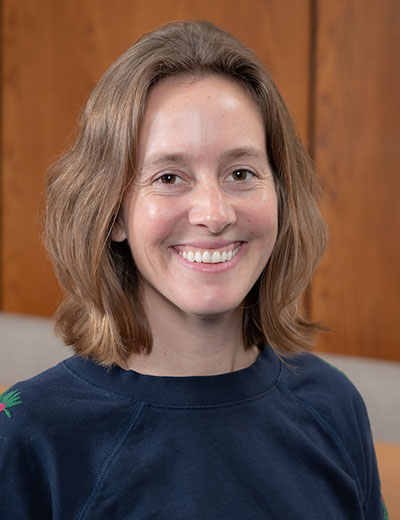Lydia Harmon '13 is a geologist who studies volcanoes and magma systems. Her work focuses on the magmatic processes and tectonic influences that govern magma formation and eruption.

Lydia comes to Occidental from Arizona State University, where she was a postdoctoral scholar at the School of Earth and Space Exploration. A geology major at Oxy, she earned her Ph.D. and M.Sc. in earth and environmental sciences from Vanderbilt University.
What drew you to teach at Occidental?
Occidental’s unique setting – in a major metropolitan area, between the ocean and desert, near the most famous fault in the world – makes it the ideal place to teach and study Geology. The focus on experiential learning, particularly through field trips, is a fantastic way for students to engage directly with the world around them in a meaningful way.
As an alumna (Oxy Class of 2013) I know firsthand that studying geology at Oxy is life-changing! I am thrilled to be back to help inspire the next generation of students and geologists.
With a full semester behind you, what are your impressions of Oxy students?
The students at Oxy are smart, motivated, and curious, but what truly sets them apart is their kindness. They are already leaders in their communities and are passionate about changing the future for the better. Their motivation inspires me to be a better educator and communicator.
When did you first become interested in volcanoes and magma systems?
Who doesn’t love volcanoes?! My first experience learning about volcanoes was during my undergraduate years at Oxy. The professor emphasized what we know – and what we don’t know – about volcanoes and the underlying magma systems. Discovering the processes of magmas beneath the surface is the focus of my research. Now, Oxy students in my lab are conducting independent research projects and learning to ask and answer research questions. Ultimately, we are assessing how magmatic rocks can give insight into broader Earth processes, including crustal evolution and volcanic hazards.
Do you have a favorite class that you are teaching, and why?
This semester, I am teaching Earth: A Field Perspective, which focuses on essential skills needed to observe and interpret geology in the field. I absolutely love conducting geological fieldwork, so I hope to pass that enthusiasm on to my students. For many students, this is their first time exploring the San Gabriel Mountains or the Mojave Desert, so there is often a combination of excitement, uncertainty, and enthusiasm. Beyond the geological skills, working collaboratively in a new environment is just as important as interpreting the geology. It is so rewarding to see students gain confidence and independence in the field to develop a greater appreciation for the landscapes around them.
Anything else you would like to add?
We are all linked to geology, as it shapes the places we live, the resources we use, and the natural hazards we face. Geology isn’t just about rocks. Instead, we strive to understand our planet and our place in the world. Through teaching and research, I hope students learn to see the world through a geological lens, whether they become geologists or simply develop an appreciation for the Earth’s dynamic processes.
